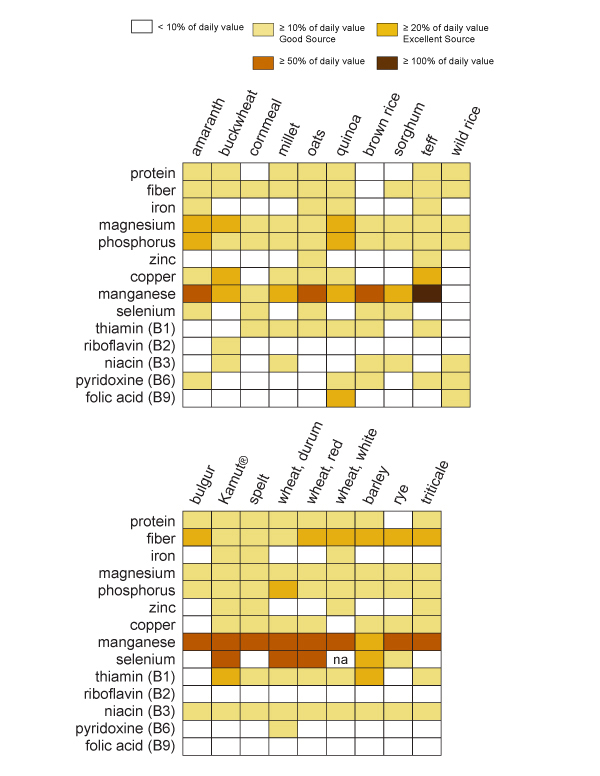
What Nutrients Do Grains Provide. Epidemiologic studies support the protectiveness of whole grain consumption for cardiovascular disease and cancer. They are an important source of antioxidants fiber B vitamins vitamin E magnesium iron and phytonutrients. It also aids digestion and helps prevent constipation. But whole grains are not a particularly good source of iron.

Vitamins and minerals Whole grains are seeds that will sprout when conditions are right so theyre loaded with nutrients for a potential plant. But whole grains are healthier providing more protein more fiber and many important vitamins and minerals. Whole grains are either single foods such as brown rice and popcorn or ingredients in products such as buckwheat in pancakes or whole wheat in bread. Whole grains are particularly high in B vitamins including niacin thiamine and folate 3 4. Processors will add back some vitamins and minerals to enrich refined grains so refined products still give valuable nutrients. Better sources are meat fish poultry prunes or molasses.
Whole grains are particularly high in B vitamins including niacin thiamine and folate 3 4.
It provides a high carbohydrate content of more than eighty percent per kernel. Whole grains provide a wide range of nutrients and phytochemicals that optimize health. Sandwiches are an excellent way to get more grains while also delivering vegetables and quality proteins. The wheat germ also provides a rich source of Vitamin E fat and oil. It also aids digestion and helps prevent constipation. Some of the nutrients in whole grains include.